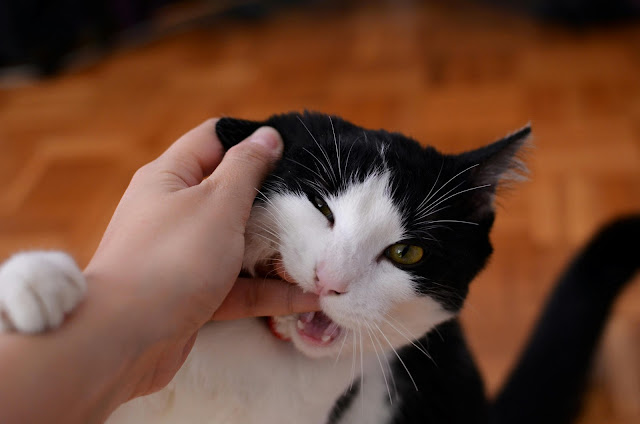Cat Playing: Fun and Benefits of Playtime for Your Feline Friend
Cat Playing: Fun and Benefits of Playtime for Your Feline Friend
Playtime is essential for cats of all ages, and it's not just a way for them to burn off energy. Whether your cat is a kitten full of curiosity or a senior cat looking to keep active, playtime is crucial for their physical, mental, and emotional well-being. In this article, we’ll explore why cats love to play, the benefits of play, and how you can provide engaging and stimulating activities for your furry friend.
Why Do Cats Play?
Cats are natural hunters, and play mimics the behaviors they would use in the wild to hunt and stalk prey. Playtime provides an outlet for these instincts, helping to keep them mentally stimulated and physically active. Here’s why cats love to play:
- Instinctual Behavior: Cats are predatory animals, and their desire to chase, pounce, and bat at toys comes from these natural instincts. Playtime helps them practice these behaviors in a safe and controlled environment.
- Energy Outlet: Indoor cats, in particular, need an outlet for their energy. Playtime helps them release pent-up energy and can prevent undesirable behaviors, such as scratching furniture or excessive meowing.
- Mental Stimulation: Play keeps your cat’s brain engaged, which is important for their overall health. It also helps to prevent boredom and keeps your cat sharp and alert.
The Benefits of Play for Cats
Not only is playtime fun for your cat, but it also comes with several important benefits for their health and happiness:
- Physical Exercise: Just like humans, cats need regular exercise to stay fit. Playtime helps keep their muscles toned and their weight in check.
- Mental Health: Engaging in interactive play can help reduce stress and anxiety in cats, as it provides them with a way to express themselves and release any built-up tension.
- Bonding Time: Play is also a great way to strengthen the bond between you and your cat. When you engage in play, you show your cat that you care, and it also provides a sense of security.
- Weight Control: Obesity is a common issue among indoor cats. Regular play helps prevent weight gain by encouraging physical activity and burning calories.
How to Encourage Playtime with Your Cat
Cats love variety in their toys and activities, so it’s important to keep things interesting. Here are a few ways to keep your cat engaged and entertained:
- Interactive Toys: Toys that mimic the movement of prey, such as feather wands or laser pointers, are perfect for stimulating your cat’s natural hunting instincts. They’ll love chasing and pouncing on these moving targets.
- Puzzle Toys: Challenge your cat’s mind with puzzle toys that require them to figure out how to access a treat or reward. This kind of activity provides mental stimulation while also rewarding them.
- Cat Tunnels and Hideouts: Cats enjoy exploring and hiding. Provide them with tunnels or cozy hideouts where they can play, nap, or stalk “prey.”
- Ball Toys: Simple toys like balls or crinkle toys can entertain your cat for hours. You can also roll the ball around to get your cat chasing after it.
Signs Your Cat Wants to Play
Sometimes, your cat will let you know they’re in the mood for playtime. Here are some common signs that your cat wants to engage:
- Pouncing Behavior: If your cat is crouching low to the ground or stalking around the house, they’re likely ready to play.
- Chasing Objects: Cats often chase after anything that moves, whether it’s a toy, string, or even your fingers. If your cat is looking for something to chase, it’s time to play.
- Playful Meowing: If your cat is meowing while bouncing around or acting hyperactive, they may be calling for your attention and ready for some fun.
- Attacking Toys: When your cat grabs, bats, or pounces on their toys, it’s a sure sign that they’re in the mood for play.
How Much Playtime Does Your Cat Need?
The amount of playtime your cat needs will depend on their age, energy level, and personality. Kittens and young adult cats tend to have higher energy levels and may require more playtime to burn off that excess energy. Older cats may prefer shorter, more relaxed play sessions.
- Kittens and Active Cats: Kittens and young adult cats may need 30 to 60 minutes of playtime per day, broken up into shorter sessions.
- Senior Cats: Older cats may not have as much energy, but short bursts of play can still be beneficial to keep them active and engaged.
.png)

.jpg)
.jpg)
.jpeg)


